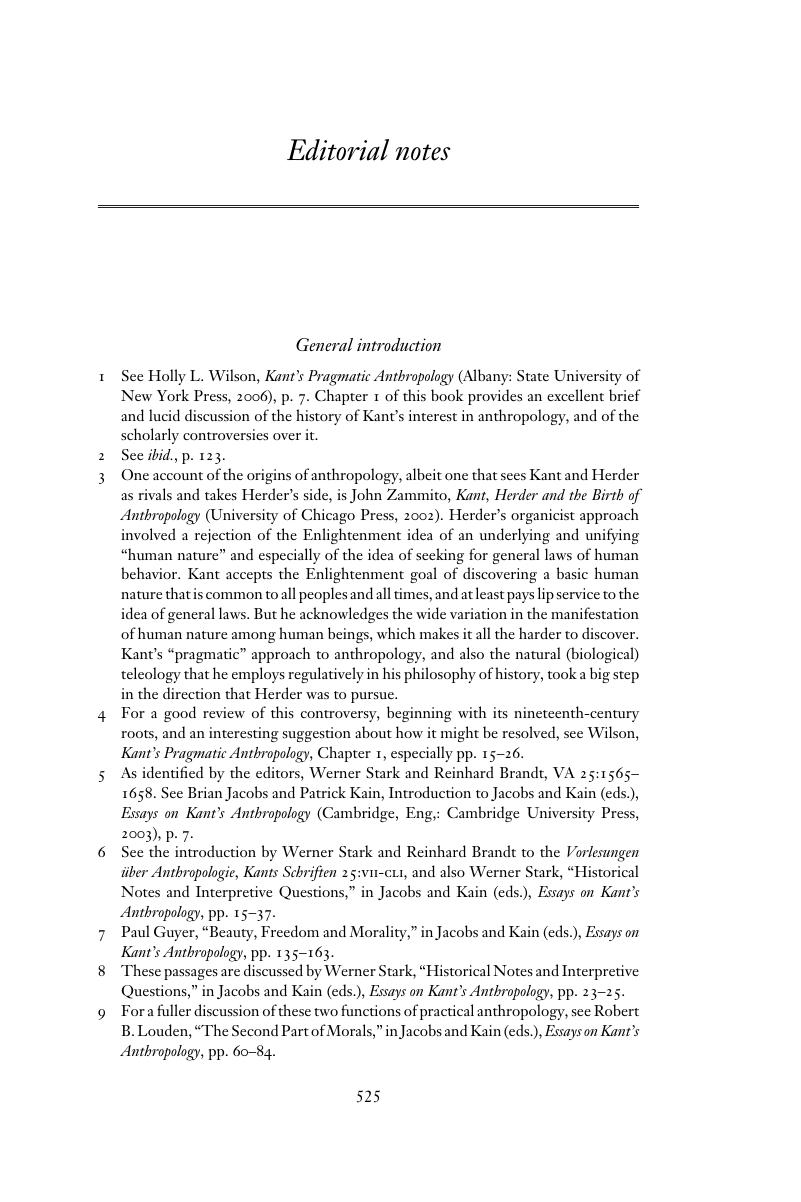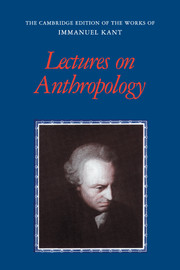Book contents
- Frontmatter
- Contents
- General editors’ preface
- Preface
- Abbreviations
- General introduction
- Anthropology Collins 1772–1773
- Anthropology Parow 1772–1773
- Anthropology Friedländer 1775–1776
- Anthropology Pillau 1777–1778
- Menschenkunde (1781–1782?)
- Anthropology Mrongovius (1784–1785)
- Anthropology Busolt, 1788–1789
- Editorial notes
- Glossary
- Bibliography
- Index
- References
Editorial notes
Published online by Cambridge University Press: 05 April 2013
- Frontmatter
- Contents
- General editors’ preface
- Preface
- Abbreviations
- General introduction
- Anthropology Collins 1772–1773
- Anthropology Parow 1772–1773
- Anthropology Friedländer 1775–1776
- Anthropology Pillau 1777–1778
- Menschenkunde (1781–1782?)
- Anthropology Mrongovius (1784–1785)
- Anthropology Busolt, 1788–1789
- Editorial notes
- Glossary
- Bibliography
- Index
- References
Summary

- Type
- Chapter
- Information
- Lectures on Anthropology , pp. 525 - 563Publisher: Cambridge University PressPrint publication year: 2012



